The dejected butchers
Butchers found themselves idle this year, fewer households performed the ritual of sacrifice because of inflation.
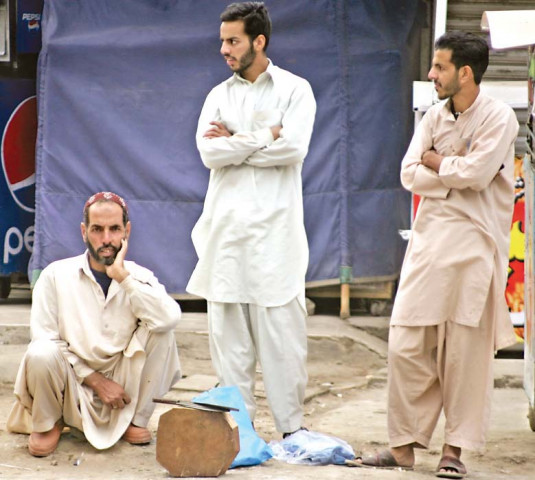
But this year, butchers of the twin cities found themselves sitting idly outside mosques and on roadsides, waiting for people to hire their services.
“As compared to previous years, I did not earn much. This time around fewer households performed the ritual of sacrifice because of sky rocketing inflation,” said Mohammad Parvez , a butcher.
Talking to The Express Tribune, he said he used to earn Rs 22,000-25,000 on the first two days of eid, but this time he hardly earned Rs 8,000-10,000.
On every Eid, Aslam Qureshi along with his others comes to Rawalpindi from Azad Jammu and Kashmir to slaughter sacrificial animals and earn money.
“The three days of Eid ul Azha has great significance in our profession as we earn a huge amount of money which helps us to run our home throughout the year, but this time the business was too discouraging,” said Qureshi.
He said the majority of his regular customers did not purchase animals due to their high price. In two days, he hardly earned 15 percent of what he used to earn before.
Khurshid Qureshi, president Jamiat Al-Quresh Meat Welfare Association and director Livestock and Dairy Development Board, said this year only 15-16 percent people performed sacrifices.
He said last year about 75,000 animals were slaughtered in Islamabad and 1, 55,000 in Rawalpindi. But this year a total of 9,000 animals were slaughtered in Islamabad and 75,000 in Rawalpindi.
“In Aabpara alone, about 1500 animals were slaughtered last year. This year it was only 140,” he added.
He said a butcher who earned Rs 30,000-35,000 last year earned Rs 10,000-12,000 this year.
Qureshi said the reason behind this low ratio was high prices of sacrificial animals which was due to the shortage of livestock in the country.
“The export of livestock and meat to other countries is the major reason behind the shortage and high prices of sacrificial animals. This has deprived many people from purchasing them this Eid,” he added.
He urged the government to stop exporting animals and focus on measures which could help overcome the shortage.
“For the very first time in my life I did not purchase a sacrificial animal because their prices were beyond my reach,” said Mohsin Hussain, a teacher.
Hussian said his total monthly income was Rs 35,000 out of which he had to pay utility bills and school fee of his two children among other expenses.
“How can a person in this small amount afford a Rs 14,000-15,000 animal, which is almost half of his pay and then pay an extra amount to butchers,” he said.
Nelofar Agha, a housewife said, “It was really difficult for me to tell my children that we couldn’t afford to buy sacrificial animals this year. It creates inferiority complex in them.”
To divert their attention, they took them to a recreational spot and spent the first day of eid there.
On the other hand, shepherds at sacrificial markets kept waiting for buyers till the third day of Eid.
“A large number of people came with the intention of buying animals but went back emptyhanded after finding out the prices,” said Mohammad Saleem, a shepherd in Barakhu sacrificial market.
Abrarullah, another shepherd at a sacrificial market in Satellite Town Rawalpindi brought animals worth Rs 2million on credit from Khushab, but hardly managed to sell two or three.“It is a huge loss. I do not know how I will pay back the money,” he said.
Published in The Express Tribune, November 20th, 2010.

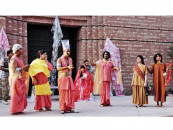
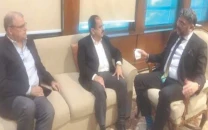
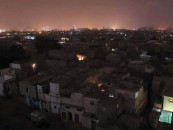
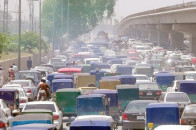














COMMENTS
Comments are moderated and generally will be posted if they are on-topic and not abusive.
For more information, please see our Comments FAQ